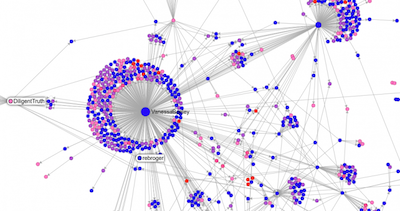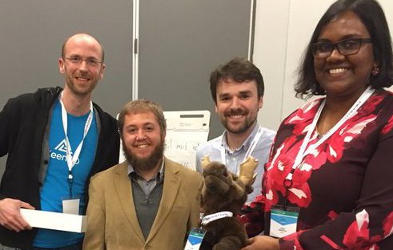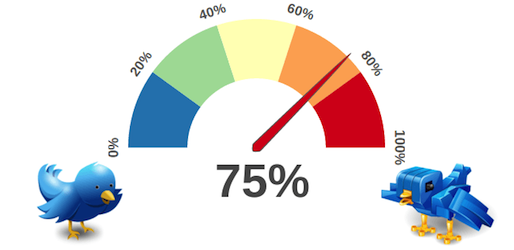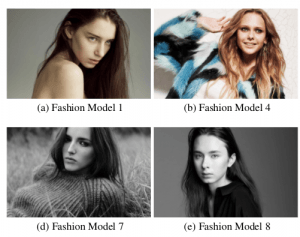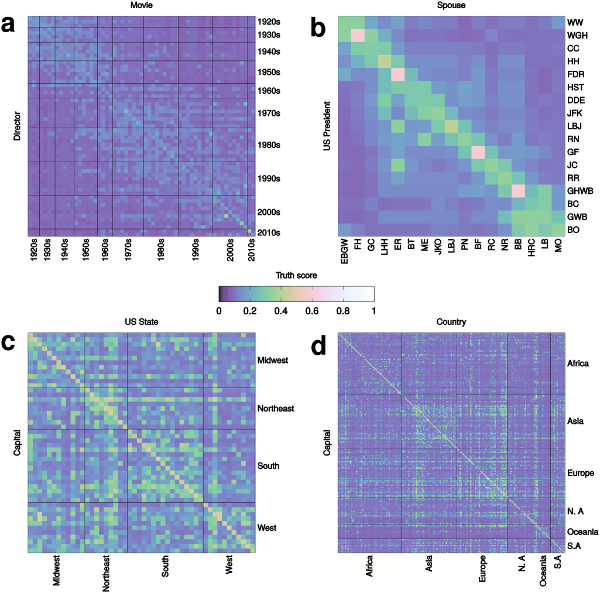Blog
Three new tools to study and counter online disinformation
Researchers at CNetS, IUNI, and the Indiana University Observatory on Social Media have launched upgrades to two tools playing a major role in countering the spread of misinformation online: Hoaxy and Botometer. A third tool Fakey — an educational game designed to make people smarter news c...
The science of fake news
The indictment of 13 Russians in the operation of a "troll farm" that spread false information related to the 2016 U.S. presidential election has renewed the spotlight on the power of "fake news" to influence public opinion. Filippo Menczer joined prominent legal scholars, social scientists and res...
Hoaxy: A Platform for Tracking Online Misinformation
While social media have brought about a more egalitarian model of information access, the lack of oversight from expert journalists makes the users of these platforms vulnerable to the intentional or unintentional spread of misinformation. We observe hoaxes, rumors, fake reports, and conspiracy th...
Why study fake news and digital misinformation
After the 2016 US elections, the topic of fake news and their spread on social media has become a hotly debated issue. As our group has been studying this phenomenon since 2010, our work has been covered and quoted in the media, analyzing the influence of social bots, the appearance of fake new...
Social bot research featured on CACM, IEEE Computer covers
Research on detection of social bots by OSoMe faculty members Alessandro Flammini and Filippo Menczer, former IUNI research scientist Emilio Ferrara, and graduate students Clayton A Davis, Onur Varol, and Prashant Shiralkar was featured on the covers of the two top computing venues:...
Observatory on Social Media launched
The power to explore online social media movements — from the pop cultural to the political — with the same algorithmic sophistication as top experts in the field is now available to journalists, researchers and members of the public from a free, user-friendly online software suite released today....
Best poster and best presenter prizes
Congratulations to Clayton A Davis, who won the best presenter prize at the 25th International World Wide Web Conference's Developers Day Workshop! Clayton presented BotOrNot: A system to evaluate social bots, a paper coauthored with Onur Varol, Emilio Ferrara, Alessandro Flammini, and...
BotOrNot passes a million hits within a week of launch
Social bots have been circulating on social media platforms for a few years, and if you frequent online social media, you've probably come across them whether you know it or not! To learn more about social bots, we built BotOrNot, a tool to analyze a Twitter user's behavior and compare it to the b...
Instagram to predict fashion model success
Predicting popularity and success in cultural markets is hard due to strong inequalities and inherent unpredictability. A good example comes from the world of fashion, where industry professionals face every season the difficult challenge of guessing who will be the next seasons’ top models. A rece...
Towards computational fact checking
Traditional fact checking by expert journalists cannot keep up with the enormous volume of information that is now generated online. Computational fact checking may significantly enhance our ability to evaluate the veracity of dubious information. In our paper, Computational Fact Checking from Know...

